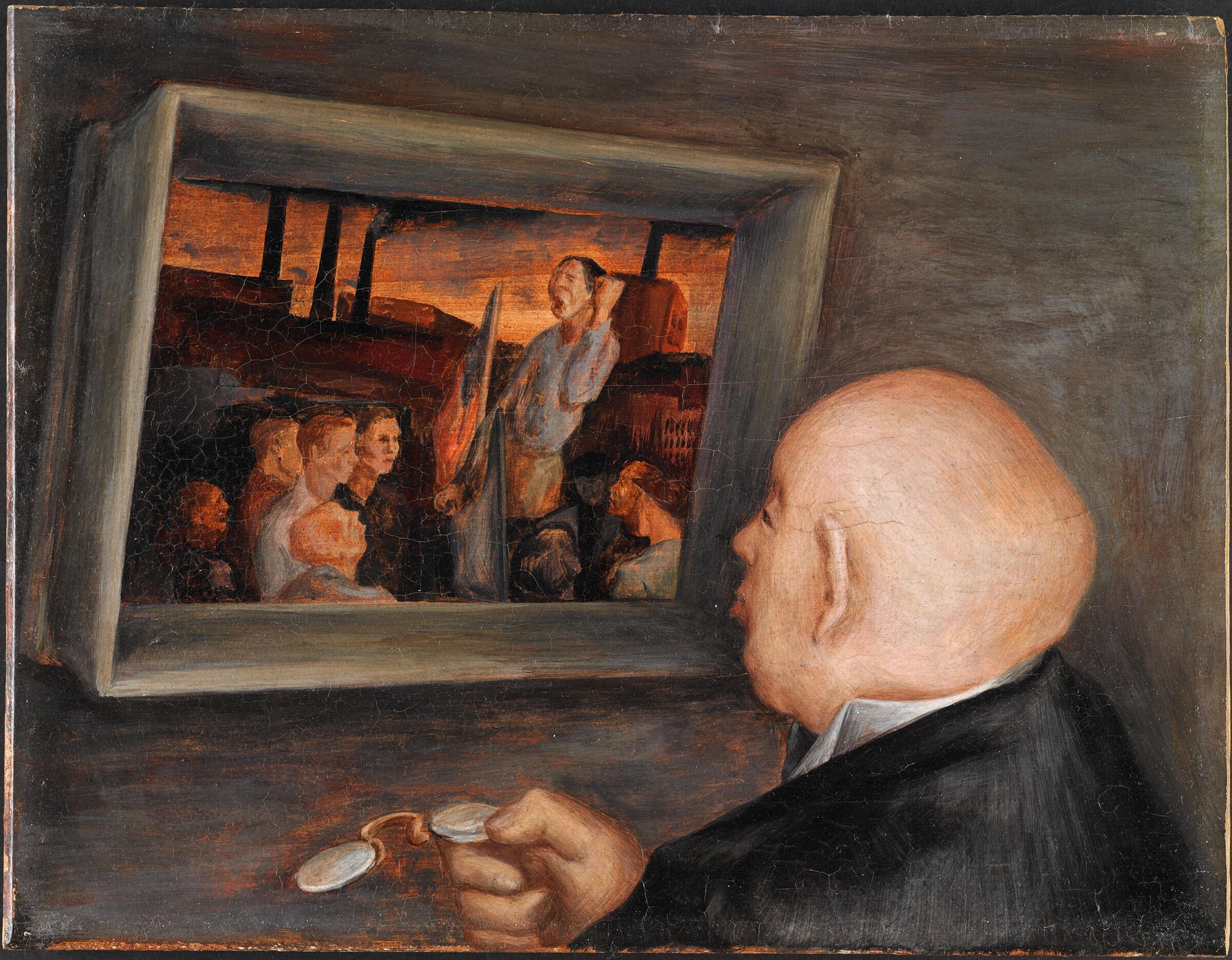SocialMorality2

Mervin Jules: The Art Lover (1937)
" … seeking to act upon our interdependent moral duties …"
Every social act seems presumptuous, for we are born autonomous beings utterly dependent upon each other. Our social lives seem contradictory to our survival, but they aren't. Our autonomy too convincingly encourages us to isolate, discriminate, and individuate when we are inescapably plurals, “beings," not merely "being." It's all terribly confusing, and without some orientation, we might be destined to attempt to be -ists: rugged individualists or survivalists, neither of which seem anywhere near anybody's crown of creation. We live in communion, or we fail to thrive. Primitive formations of communion include cults, competing clubs, and patriotism, each of which paradoxically relies upon separatism as the medium for community, as its unifying purpose. Each vilifies difference instead of holding it supremely sacred. SocialMorality utterly depends upon a deep reverence for difference, not just the tolerance of it but an admiration equal to the wonder that difference actually entails. Difference seems to be the unifying principle underlying all social activity and, therefore, SocialMorality.
The purpose of school should be an orientation to—learning—SocialMorality. Not to have it beaten into resistant rebels nor to administer it with the possibility that anybody would fail in this study, and not, perhaps, as anything other than a continual subtext beneath the usual more practical subjects. The underlying purpose of learning to read, write, or manipulate numbers should be to increase understanding and capacity to fulfill Social Morality's grave responsibilities. Each student could absorb the fundamentals of community without being brainwashed into becoming card-carrying communists. Each student could come to deeply understand how they are their brother's keeper without anyone tumbling into complete dependence, to be dependable without placating or surrendering self-esteem, and to be responsibly reliable without utterly sacrificing all they properly possess. One essentially attends primary school to learn how not to grow up to become an asshole.
The classes themselves never amount to the purpose of school. They serve as the medium for learning, not its purpose. Some subjects some students might never master, but their subtext might still deeply influence their ongoing behavior. Those for whom math remains an eternal mystery might exit the academy understanding its essence anyway and with a deep respect for those blessed with that particular ability, for they will always seem different but need not ever seem necessarily separate or evil. Mathematicians are not superior or inferior beings, just different and extremely useful in some situations. It seems a social sin to dismiss them as mere eggheads. We're each eggheaded at something yet still integral parts of much larger wholes.
The reverence of difference renders a people fearless, for the reviling of difference should properly terrify each of us. If we cannot respect others, we have no reason to believe that anyone would appreciate the uniquenesses within us, leaving us terribly exposed. The great purpose of Social Morality might be to head off the tendency for humans to scare each other away, to focus upon our differences to the exclusion of our underlying likenesses, or to focus upon differences as defining rather than just deeply informing. People insist that the purpose of their religion was intended to produce precisely this end, to remind us how we're all God's children, siblings in even the largest order of things, but then we descend into fighting heart-felt theological wars where everyone, our very social fabric, suffers. Gods might practice vengeance as their own while SocialMorality demands ever more forgiveness. Forgiveness for ourselves for sometimes feeling so separate and forgiveness for others, knowing that their differences really should be informing more than terrifying us.
Every social act seems presumptuous just because it is. This recognition renders us human. We might be destined to struggle with acceptance of our greatest potentials and gifts, neither of which belong solely to any individual one of us. We stand on others’ shoulders. We offer legs up. We encourage. We notice. The ten thousand tiny tacit acts that comprise our social fabric depend upon our understanding of more than our independence. Instead, we might revere a Declaration of Dependence, which correctly recognizes and respects the deep connections each of our presences represents. We, the People, it might begin and sincerely mean it this time. We would not seek to become independent from ourselves but an autonomous whole seeking to act upon our interdependent moral duties rather than merely our more primitive individual whims and desires.
©2023 by David A. Schmaltz - all rights reserved


